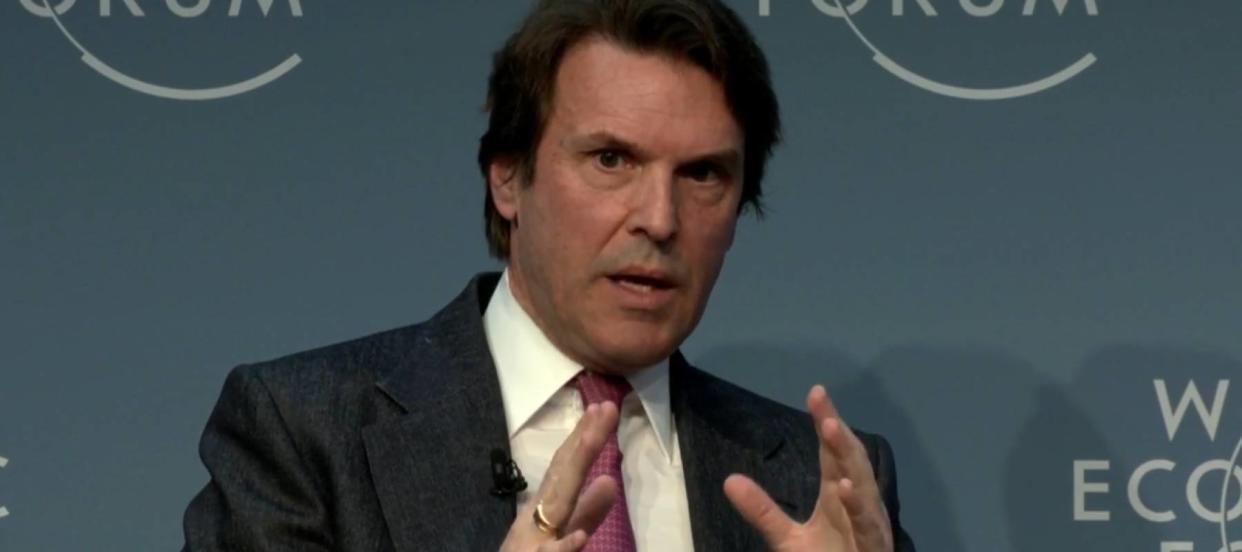WEF speaker warns every time we drink coffee, we are 'putting CO2 into the atmosphere’ — says each ton of Joe emits an alarming 15 to 20 tons of CO2. Is it time to give up your daily brew?

It has been estimated that nearly 3-in-4 Americans drink coffee every day. However, did you know that your morning cup of Joe may also have repercussions for the environment?
The topic recently came up during a panel discussion at the World Economic Forum in Davos, Switzerland. Speaker Hubert Keller highlighted a crucial yet often overlooked issue for coffee drinkers.
Don’t miss
Commercial real estate has outperformed the S&P 500 over 25 years. Here's how to diversify your portfolio without the headache of being a landlord
Inflation crisis? Crush it with these 3 explosive investment strategies
Take control of your finances in 2024: 5 money moves to start the new year off strong
“Every time we drink coffee, we are basically putting CO2 into the atmosphere,” Keller stated.
Keller, who is a senior managing partner at Swiss private bank Lombard Odier Group, provided a quantification of this environmental impact.
“The coffee that we all drink emits between 15 and 20 tons of CO2 per ton of coffee, so we should all know that,” he remarked.
Coffee and climate
The World Economic Forum, a nongovernmental agency that aims to improve the world by bringing together business, political, academic and societal leaders to help provide solutions to the world’s greatest problems, including climate change.
However, the annual forum has garnered pushback, as some argue it has turned it into an elitist gathering for out-of-touch billionaires in the Swiss Alps town.
Keller’s coffee anecdote came up during a panel on “Putting a Price on Nature.” It's important to note that he didn't advise on the quantity of coffee one should consume or suggest a reduction in coffee intake.
However, he did raise another critical issue — one that coffee aficionados should consider, especially if they’re concerned about the quality of their brew.
Read more: This Pennsylvania trio bought a $100K abandoned school and turned it into a 31-unit apartment building — how to invest in real estate without all the heavy lifting
“Most of the coffee plantation or most of the coffee is produced through monoculture, and monoculture is also affected by climate change,” Keller pointed out, adding that “the quality of these natural assets is deteriorating quite rapidly.”
Considering that over 2.25 billion cups of coffee are consumed globally each day, the interplay between coffee and climate change is not just relevant but critical. A modeling study predicts that by the year 2050, approximately half of the land currently used for cultivating high-quality coffee could become unproductive as a result of climate change.
Coffee carbon emissions in context
Of course, coffee isn’t the only dietary element that contributes to greenhouse gas emissions. According to the United Nations Food and Agriculture Organization, livestock production is responsible for emitting an estimated 7.1 gigatonnes of CO2 equivalent per year, accounting for a significant 14.5% of human-induced greenhouse gas emissions.
Moreover, even the items commonly consumed with coffee also carry their own carbon prints. Research indicates that the production of each ton of sugar results in the emission of 241 kgs of CO2 equivalent into the atmosphere. Additionally, as highlighted by co2everything.com, a single glass of milk (250 mL) generates an equivalent of 0.8 kg of CO2, which is comparable to driving a car for 3.8 kilometers.
What to read next
Robert Kiyosaki warns: ‘Cash is trash’ — Discover the power of diversifying with gold now
Jeff Bezos and Oprah Winfrey invest in this asset to keep their wealth safe — you may want to do the same in 2024
Millions of Americans are in massive debt in the face of rising rates. Here's how to take a break from debt this month
This article provides information only and should not be construed as advice. It is provided without warranty of any kind.
